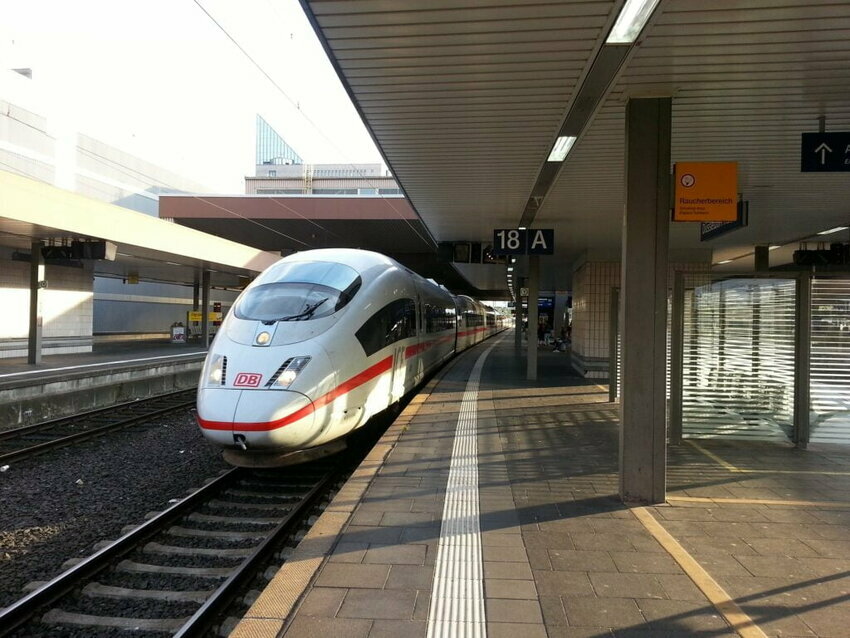
Taiwan High Speed Rail Corporation operates the high-speed railway for Taiwan — a line that runs about 22 miles from the West Coast to the capital of Taipei. The $513 billion project was the world's most prominent privately-owned rail system when the first shovels went into the ground in 1998. Operations started in January 2007 with trains running 186 miles per hour, an on-time record of 99% with no accidents.
The company is widely recognized for its sustainability records as well. With a motto of, “Go the extra mile, “it conducts greenhouse gas inventories, promotes waste reduction, and saves electricity per passenger served. Some high points:
— Total amount of greenhouse gas emissions was 281,696.73 CO2 equivalents metric tons.
— The annual solar power generation of the four depots and six stations reached 11,657.015 MWh.
— The amount of waste recycled reached 1,613.104 metric tons, with a recycling rate of approximately 27.1%. In 2021, no breach of contract occurred, and no leakage of oil, fuel, chemical substances, or waste occurred.
— The annual average electricity conservation rate per passenger served by 12.380% compared to 2021, and
— The company reduced water consumption per passenger by 17.170% compared to 2021.
“As we have achieved our carbon reduction commitment of reduction by more than 3% within three years (by 4.92% in practice), we were awarded a 'carbon reduction label,'" it says. “To continuously improve the energy use efficiency of trains, (the company) introduced the LED device replacement plan and the energy-saving train operation plan,” it adds. “The former has been promoted from November 2013 to the end of 2021, saving 11,793 MWh of electricity cumulatively and reducing CO e by 6,146 metric tons.”
The train operator has also built solar power generation facilities at its maintenance depots and train stations. In 2021, the annual solar power generation reached 11,657.015 MWh. The total power generation of the four maintenance depots was 9,157.52 MWh.
In 2019, it sought to use all LED lamps at its headquarters. By 2021, that saved 231,780 (kWh) in power consumption. That prevented about 121 metric tons of CO2.
Furthermore, it estimates that it saved 585,360 pieces of paper, conserving 70 trees and reducing 840 kg of carbon emissions. Meanwhile, it deployed power conservation measures between 2017 and 2021, saving about 826,000 kWh of electricity. That’s the equivalent of a reduction of around 152.78 metric tons of CO2-equivalents.
Taiwan High Speed Rail is also water-conscious. In 2020 and 2021— during the Covid pandemic— the water-saving rate in 2021 reached 17.17% — more significant than the water-saving rate in 2020, which was 5.34%. “We continue to meet the water resource reduction target.
“(The company) not only strengthens water conservation promotion for employees and passengers but also reduces water consumption by regulating the water output of faucets and planting sprinkler irrigation,” it adds. “In the future, (we) will continue to pay attention to changes in water conditions and adjust water resources management measures.”
The company also sets up wastewater treatment plants at specified stations and depots. The total water discharge in 2021 was 27.97 million liters, it says.
As it pertains to waste, if it can’t recycle, the waste goes to the incinerator. It says: In 2021, the total amount of waste treated as per the reports filed was 5,947.35 metric tons, and 1,613.104 metric tons of waste was recycled, with a recycling rate of approximately 27.1%. In 2021, no breach of contract occurred, and no leakage of oil, fuel, chemical substances, or waste occurred. The company commits to reducing o waste among its suppliers too.
Contractors are required to clean and dispose of the waste appropriately generated. "In addition to the awareness-increasing session in meetings on interface agreements and work meetings with contractors, we supervise each contractor’s implementation of waste treatment measures through on-site audits,” it says, noting that it “actively implements the concept of green procurement and is committed to improving the sustainable performance of the overall supply chain.”
It invests in sewage treatment plants while improving the maintenance and upgrade of wastewater treatment plants, coagulants, precipitants, disinfectants, and water quality inspection.